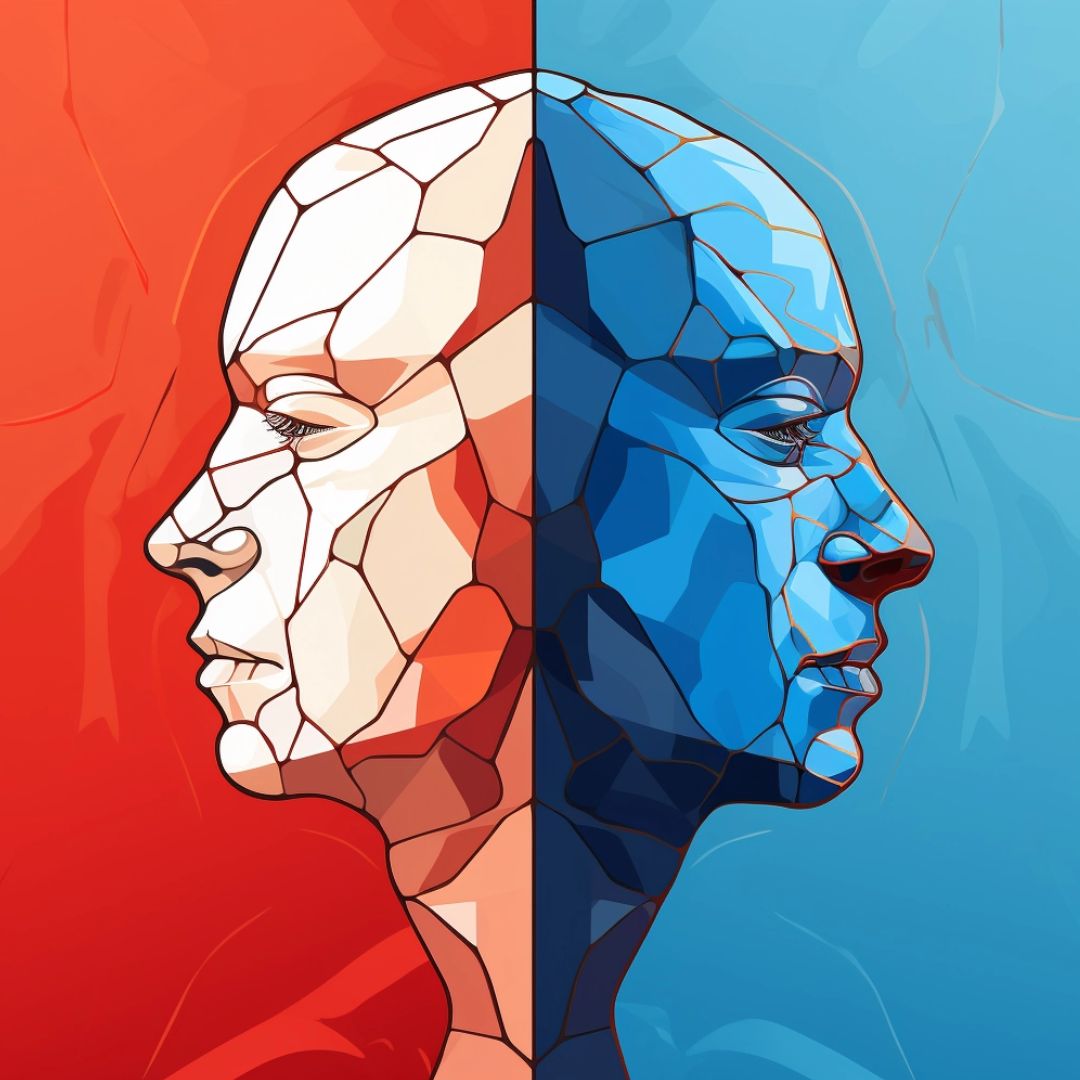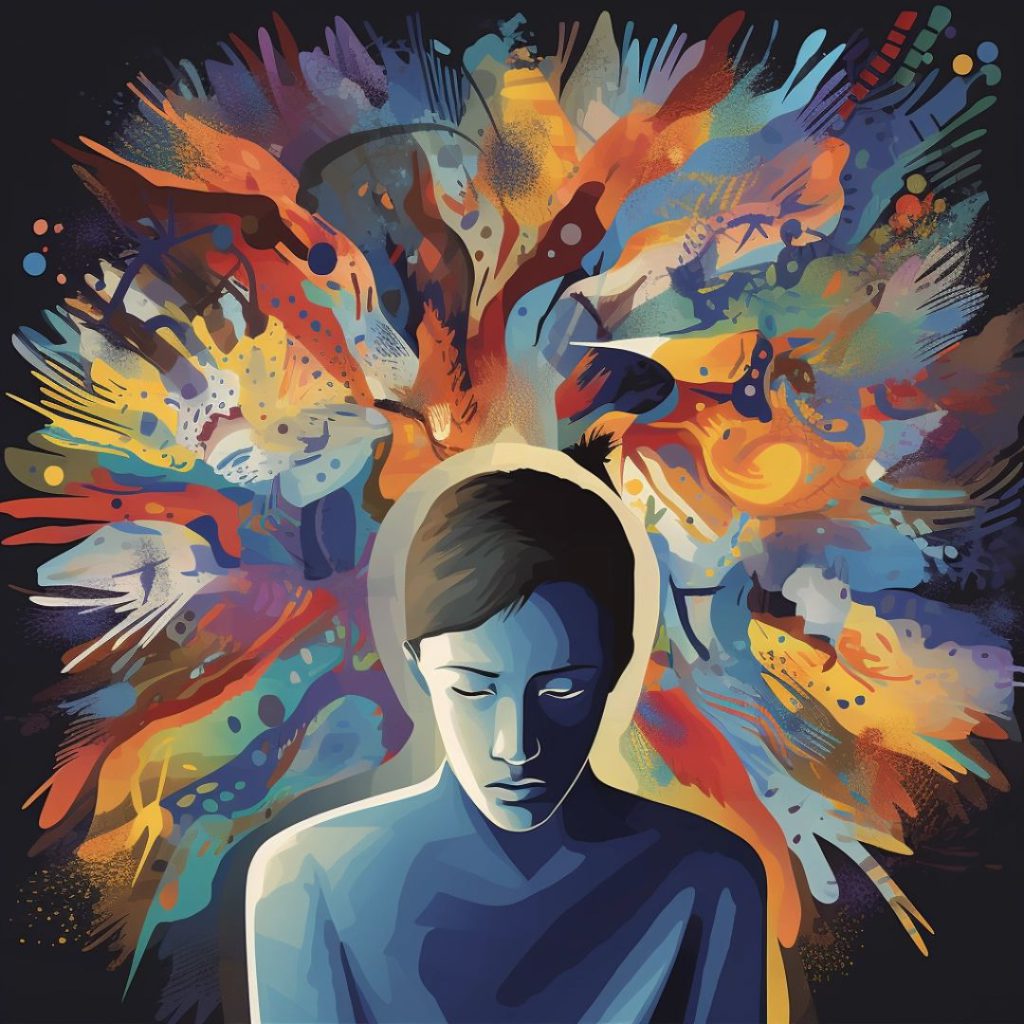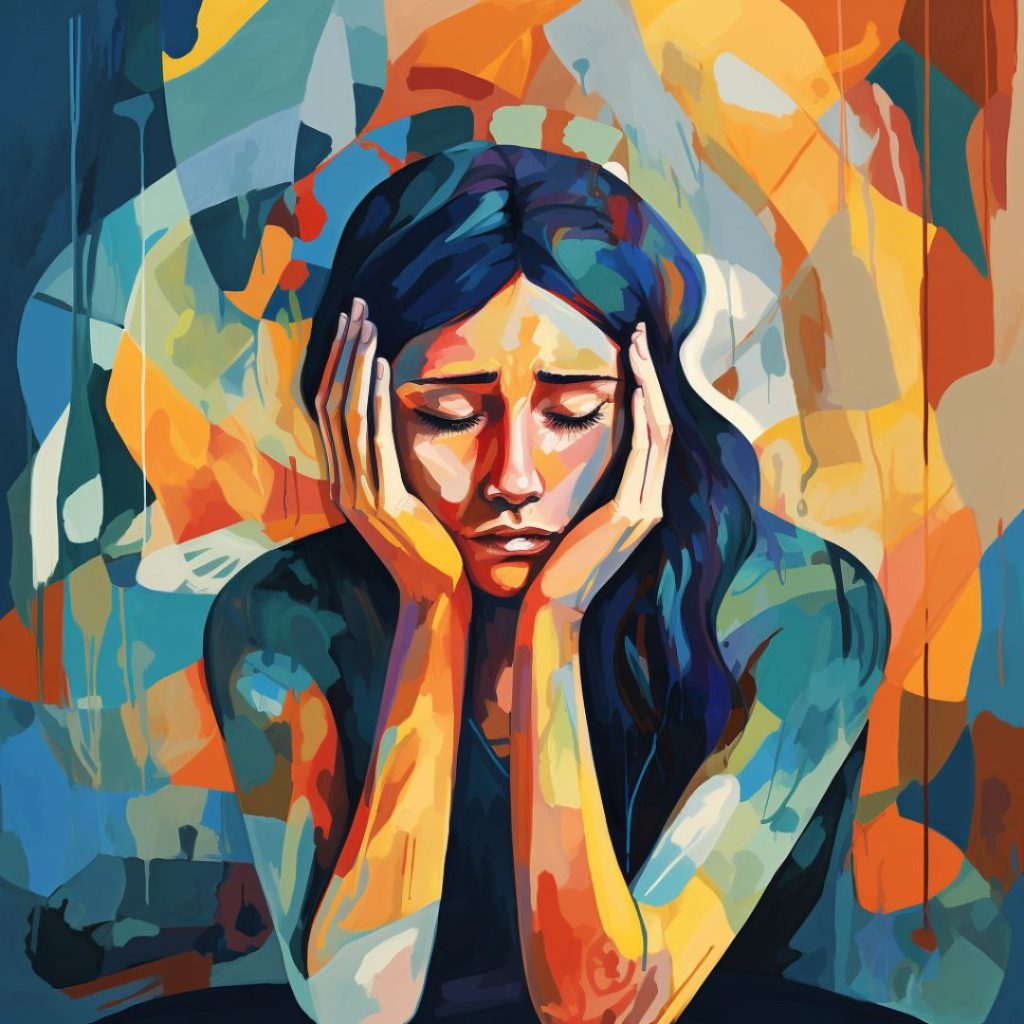MBTI and Bipolar Disorder | Is There a Link?

Bipolar disorder is a serious mental illness that affects many people worldwide, causing extreme mood swings from severe depression to euphoric mania. As the Myers-Briggs Type Indicator (MBTI) becomes more popular, people are interested in exploring connections between personality types and mental health conditions, particularly MBTI and bipolar disorder.
It’s important to note that there is no direct scientific evidence on what personality type is most likely to be bipolar. The condition results from a combination of genetics, brain chemistry, and life experiences. However, we can theorize whether certain MBTI traits might offer insights into potential connections with the underlying causes of bipolar disorder.
This article takes an exploratory approach, not aiming to provide definite answers but rather to spark curiosity and responsible discussion. We’ll discuss whether specific MBTI traits might align with factors contributing to bipolar disorder, emphasizing the need to seek professional help for diagnosis and treatment.
The Link between MBTI and Bipolar Disorder
While certain traits might exist alongside bipolar disorder, they don’t cause it. Each individual experiences the condition uniquely, shaped by their unique genetic makeup, brain chemistry, life experiences, and coping mechanisms.
It’s important to debunk the misconception that specific MBTI types, such as ESTPs (Doers) and ESFPs (Performers), are more prone to bipolar disorder due to their expressive nature and willingness to act on their impulses. Associating certain personality types with a higher susceptibility to bipolar disorder oversimplifies the complex factors contributing to the condition.
Personality traits alone do not determine one’s vulnerability to bipolar disorder. While ESTPs and ESFPs may exhibit spontaneity and expressiveness, it’s crucial to understand that bipolar disorder arises from a combination of mentioned factors.
Similarly, linking introversion to a dangerous tendency to isolate and a higher likelihood of depressive episodes in bipolar disorder is a misconception. While introverted individuals may have different coping styles, it’s essential to recognize that anyone, regardless of their introversion or extroversion, can experience mental health challenges.
Another misconception about MBTI and Bipolar disorder is to categorizing Feeling types as more prone to bipolar disorder based on the name of their category! This generalizes the intricate relationship between personality and mental health. The Feeling preference in the MBTI primarily reflects how individuals make decisions, not their predisposition to mood swings or mental health conditions.
Are you curious about each MBTI Personality’s potential mental illnesses?
Then this article is for you:
The Relationship between MBTI and Mental Illness
What is Bipolar Disorder?

Bipolar disorder is a mental health condition where a person experiences extreme mood swings. These mood swings include periods of intense sadness and hopelessness (depression) and times of heightened energy, excitement, and irritability (mania). There are two main types: bipolar I, which involves severe manic episodes, and bipolar II, which has milder manic episodes.
| Related: Bipolar Fatigue
Causes
While the exact cause remains unknown, it’s likely a combination of factors:
- Genetics: Having a family member with bipolar disorder increases your risk.
- Brain chemistry: Imbalances in brain chemicals like serotonin and dopamine are thought to play a role.
- Life experiences: Stressful events, trauma, or major life changes can trigger episodes.
Symptoms
Mania/Hypomania:
- Feeling excessively happy, elated, or irritable.
- Increased energy and activity levels, often to the point of restlessness.
- Racing thoughts and difficulty concentrating.
- Decreased need for sleep.
- Grandiose thoughts or beliefs, feeling invincible or special.
- Engaging in risky or impulsive behaviors.
Depression:
- Feeling persistently sad, hopeless, or empty.
- Loss of interest or pleasure in activities previously enjoyed.
- Significant changes in appetite or sleep patterns.
- Difficulty concentrating, making decisions, or thinking clearly.
- Decreased energy and motivation.
- Thoughts of suicide or self-harm.
| Discover: Self-Care Practices for Bipolar Disorder
Personality Traits and Bipolar Disorder

It’s important to clarify that people with bipolar disorder are individuals with diverse experiences, not a homogenous group characterized by specific behaviors or personality traits.
While there might be common symptoms associated with manic and depressive episodes, these manifest differently in each person. Focusing on specific personality traits as characteristic of people with bipolar disorder risks perpetuating harmful stereotypes and inaccurate generalizations.
Bipolar disorder affects mood, energy levels, and activity levels, leading to significant shifts in thoughts, behaviors, and feelings.
During manic episodes:
- Individuals may experience elevated mood, euphoria, or irritability.
- They might exhibit increased energy, racing thoughts, and decreased need for sleep.
- Grandiose ideas, impulsive behavior, and poor judgment can also occur.
During depressive episodes:
- Individuals may experience feelings of sadness, hopelessness, and worthlessness.
- They might exhibit decreased energy, loss of interest in activities, changes in sleep and appetite.
- Difficulty concentrating, making decisions, and suicidal thoughts may also occur.
Remember:
These are examples, not absolutes. Individuals with bipolar disorder experience these symptoms differently and to varying degrees. Bipolar disorder does not define someone’s personality. They are individuals with unique personalities just like anyone else.
Avoiding Misunderstandings and Provide Support

Supporting individuals with bipolar disorder requires understanding the complexities of the condition and avoiding common misunderstandings. Here are some key tips:
- Don’t assume you know how they feel
- Don’t minimize their experiences
- Don’t offer unsolicited advice
- Don’t equate personality with illness
- Don’t judge their treatment choices
- Be available to listen without judgment
- Offer a safe space for them to express themselves
- Encourage professional help
- Be patient and understanding
Remember:
Diagnosis of bipolar disorder is complex and requires professional expertise. If you suspect a friend or family member may exhibit symptoms, encourage them to seek professional help. Qualified mental health professionals can accurately diagnose and provide essential treatment and support.
Read more…
HealWiser’s Last Piece of Advice
While seeking connections between MBTI and Bipolar disorder or any mental health issue is understandable, it’s crucial to avoid attributing disorders to specific traits.
Each individual experiences the condition uniquely, shaped by their unique genetic makeup, brain chemistry, life experiences, and coping mechanisms. Generalizing specific traits to all individuals with bipolar disorder risks inaccurate and potentially harmful stereotypes.
Sharing your experience can provide valuable insights and emotional support. So…
…share your story with HealWiser and others in the comments section below this post.





